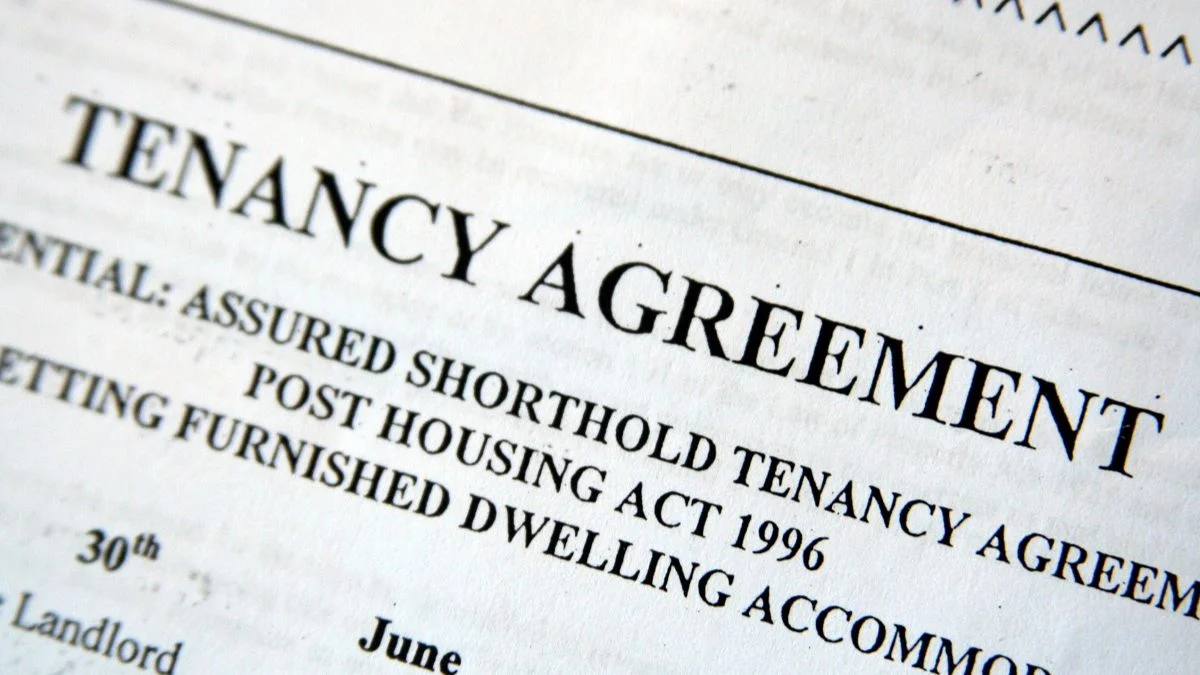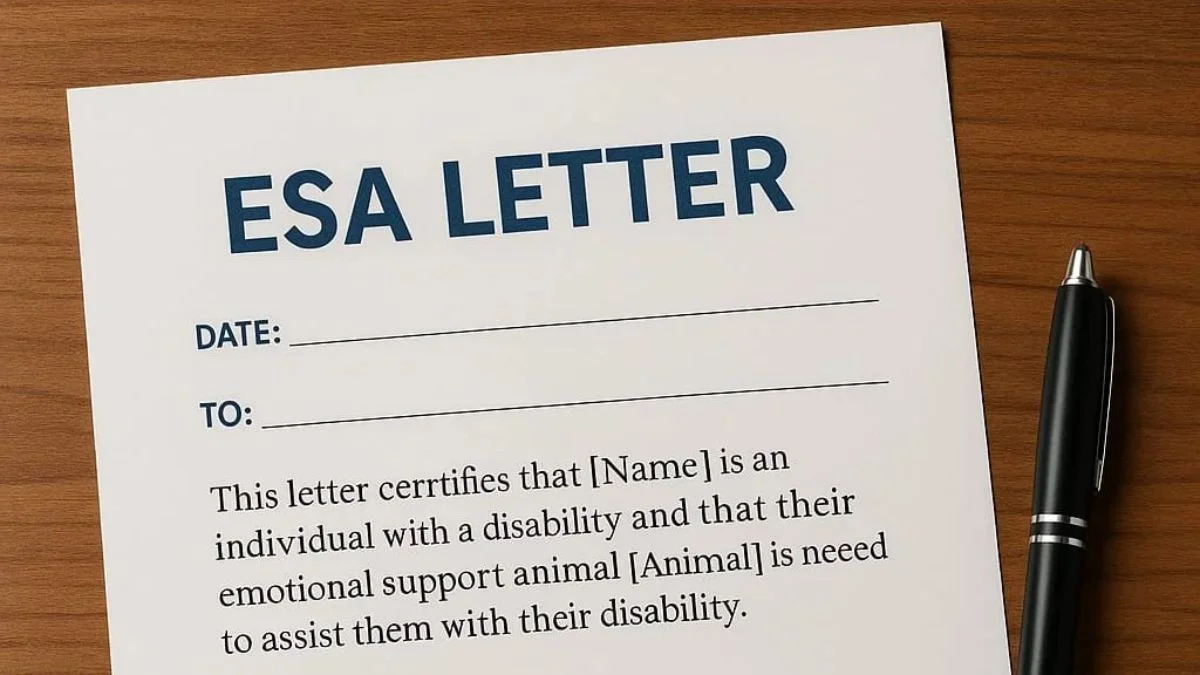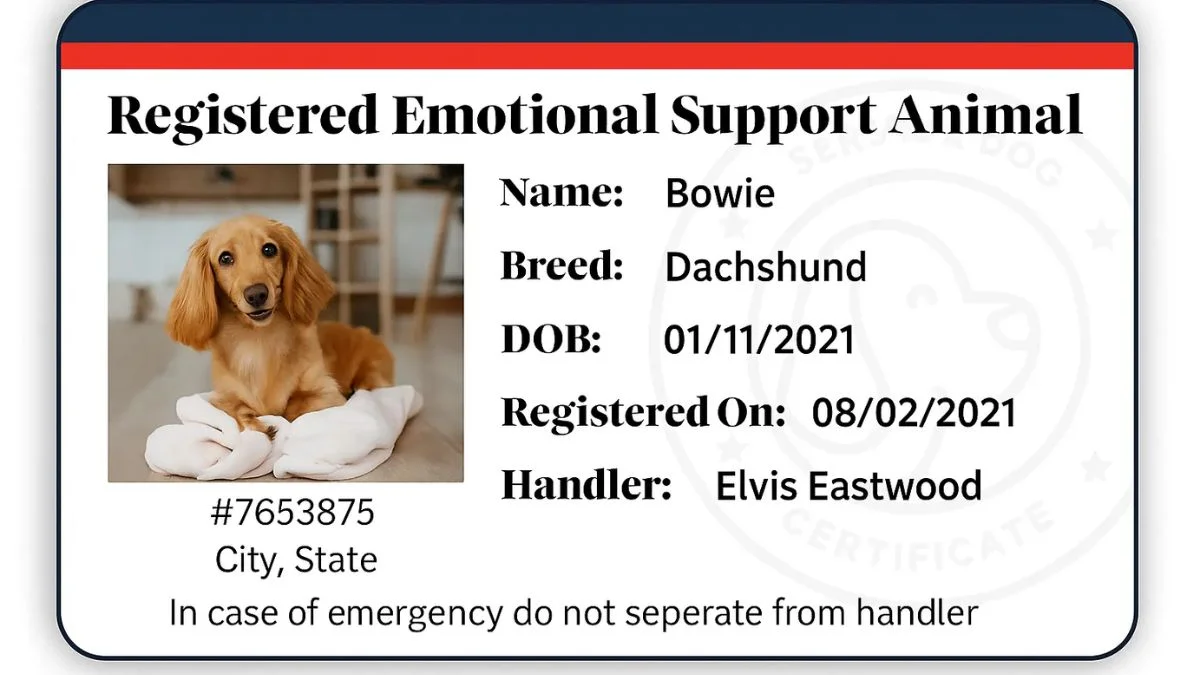Landlords want to protect their property. Tenants want fair access to housing. When it comes to pet deposit for emotional support animals or service animals, the rules can feel unclear. Can landlords deny an ESA? Do renters have to pay pet rent for emotional support animals? This article, LeaseRunner will bring clarity by outlining the law, sharing case examples, and explaining what both sides should expect.
What Is an Emotional Support Animal (ESA)?

An Emotional Support Animal (ESA) is an animal that provides therapeutic benefits to its owner through companionship, lessening the symptoms of the person's disability. An emotional support animal provides therapeutic comfort to people dealing with anxiety, depression, Post-traumatic stress disorder, or other mental health conditions.
Unlike pets, ESAs are not a lifestyle choice; they are prescribed by a licensed mental health professional (LMHP). Key points include:
- ESAs are protected under the Fair Housing Act (FHA)
- They do not require special training, unlike service animals.
- They cannot be denied solely because of a “no pets” policy, though ESAs are not considered service animals under the ADA and do not automatically guarantee free cabin access on airplanes.
Emotional support animals provide therapeutic benefits for tenants with mental or emotional disabilities. Their purpose is to offer support, not to perform tasks like service animals or serve as ordinary pets.
Can Landlords Deny an Emotional Support Animal or Charge a Deposit?

No. Under the Fair Housing Act (FHA), landlords cannot deny housing to a tenant who has a legitimate emotional support animal (ESA), as long as the tenant provides a valid ESA letter from a licensed mental health professional. The answer to "do landlords have to accept emotional support animals" is generally yes, unless specific exceptions apply.
Landlords also cannot charge a pet fee or pet deposit for emotional support animal accommodations. Even if the property has a strict “no pets” policy, an ESA must generally be permitted as part of a reasonable accommodation. While pet deposits are not allowed, landlords are still within their rights to:
- Charge tenants for damages caused by the ESA, just as they would for any tenant-related damage.
- Request legitimate documentation from a licensed mental health professional verifying the need for the ESA.
However, tenants are still responsible for damages caused by the ESA. The only exceptions where a landlord might deny an ESA relate to:
- The specific animal poses a direct threat to the health or safety of others.
- The presence of the animal resulted in substantial physical damage to the property of others.
- The accommodation imposes an undue financial and administrative burden or fundamentally alters the nature of the provider's operations.
These costs are not considered pet fees but rather standard tenant responsibilities. If an emotional support animal causes damage, such as stained carpets or scratched walls—the landlord may deduct those repair costs from the tenant’s regular security deposit, the same way they would for any other tenant-caused damage. Find more details on whether pet deposits are refundable if no damage occurs in our guide.
Here is a sample Tenant Email Requesting ESA Accommodation
Difference Between ESA and Service Animals in Housing Rights
While both are considered assistance animals and are protected under the FHA, their legal standing and purpose differ slightly, particularly when discussing pet deposit for service animals.
- Service animals (dogs trained to perform tasks for people with disabilities) are covered under both the ADA (Americans with Disabilities Act) and the FHA, which gives them broader legal recognition.
- Emotional support animals are covered only under the FHA and do not require specialized training to qualify. Their primary role is to support tenants with documented disabilities, particularly mental or emotional conditions.
Both categories are exempt from pet rent or pet fees. But only service animals have additional access rights in public places like restaurants and stores.
Here are summary table:
The key takeaway is that both ESA and Service Animals are afforded the same protection from routine pet rent and pet deposit charges under the FHA.
Landlord Guidelines on ESA and Deposits

Landlords often ask whether they can require a pet deposit for an emotional support animal (ESA). The answer is no. Under the Fair Housing Act (FHA), landlords cannot charge a pet deposit or pet fee specifically for an ESA, even in buildings with strict “no pets” policies. Understanding these rules is essential to avoid costly legal disputes and ensure compliance with fair housing requirements.
Request Proper Documentation
Landlords have the right to request documentation to verify the tenant's disability-related need for the ESA. This documentation must come from a licensed professional, such as a doctor, psychiatrist, or Licensed Mental Health Professional (LMHP), affirming that the animal is needed for the person's treatment. Landlords should not ask for details about the disability itself.
Tenant Responsibility for Damages
While landlords cannot charge a pet deposit for an emotional support animal, tenants remain financially responsible for any damages the ESA causes beyond normal wear and tear. These costs can be covered through the tenant’s standard refundable security deposit, just as landlords would handle damage from any other tenant or their guests.
No Differentiation on Rental Terms
Landlords cannot apply different rules or fees for tenants with ESAs. This means:
- No extra rent for an ESA.
- No separate pet deposit for emotional support animal accommodation.
- Equal lease terms for all tenants, regardless of whether they own an ESA or not.
That said, landlords still need to ensure their rent pricing is fair and competitive in the broader market. Setting the right rent amount for all tenants helps maintain consistency and avoids the perception of bias.
Lease Policy Updates
It's wise to have a clear understanding of your pet addendum and how it interacts with FHA laws. Ensure your lease and any lease addendum templates clearly state the policy regarding assistance animals to prevent confusion and legal issues.
Handling Disputes and Complaints
If landlords have valid concerns like a direct threat to others' safety, they must engage in an interactive process with the tenant to find an alternative solution. If landlords deny an ESA, they must have substantial, legally-defensible reasons based on specific facts about the animal and provide the tenant with a chance to respond.
Tenant Rights and Responsibilities with ESA

Tenants have important rights and responsibilities when living with an ESA.
Right to Reasonable Accommodation
The most important right tenants have is the right to reasonable accommodation. Under the FHA, landlords must make exceptions to any “no-pets” policy and allow an ESA in the rental unit. This applies regardless of the landlord’s personal feelings toward animals.
No Pet Deposits or Fees Access
One of the most common questions is: do tenants have to pay pet rent for ESA? The answer is clear - no. Landlords cannot:
- Charge a pet deposit for emotional support animal requests
- Add monthly ESA pet rent
- Apply non-refundable pet fees
This rule applies to both refundable deposits and non-refundable charges. An ESA is not considered a pet under federal law, which means it must be treated differently than ordinary animals.
Rights Protection from Discrimination
Tenants are protected from being:
- Evicted because of an ESA
- Denied a lease renewal for requesting an ESA
- Charged higher rent to offset supposed risks
Landlords cannot retaliate against tenants who submit a valid ESA letter. If this happens, tenants can file a complaint directly with HUD or their local fair housing authority.
Liability for Damages
Tenants are responsible for any physical damage the ESA causes to the property. While the landlord can't charge a pet deposit for emotional support animal, the general security deposit may be used to cover damages, just as it would for any property damage.
Maintain Control and Hygiene
Tenants must maintain control of their ESA at all times and ensure proper hygiene and cleanliness to prevent property damage or disturbances to neighbors:
- Keep their ESA under control (no excessive barking, roaming, or aggression)
- Maintain proper hygiene (clean litter boxes, waste disposal, grooming)
- Prevent disturbances to neighbors
Failure to manage an ESA properly can result in valid complaints and, in extreme cases, legal eviction proceedings.
Limitation on Number/ Type of ESAs
The FHA does not give unlimited rights to keep any number or type of ESAs. Landlords may challenge requests that:
- Involve multiple ESAs without proper medical justification
- Request unusually large or exotic animals that could pose a danger or create structural challenges (e.g., a horse in an apartment)
- Create an undue financial or administrative burden on the housing provider
For example, a tenant requesting three large dogs without medical documentation may face a valid denial. But a tenant with one small ESA, supported by an LMHP letter, is protected.
How to Spot a Legitimate ESA Letter vs. Fake Services for Landlords?

The prevalence of online services selling "instant" letters has made pet screening difficult. Landlords must know how to spot non-legitimate documentation.
Online "Instant" Letters Without Consultation
A legitimate ESA letter requires a therapeutic relationship. Be skeptical of sites that promise an ESA letter instantly or after a brief questionnaire without a real consultation with an LMHP.
Generic Templates or Missing Professional Information
A valid letter should be on the licensed professional's official letterhead and include their license number, date of issue, state of licensure, and signature. Generic, templated letters are often fake.
Unlicensed Providers or No License Shown
Ensure the person signing the letter is a Licensed Mental Health Professional (LMHP), such as a psychiatrist, psychologist, or licensed clinical social worker, and that their license number is clearly shown.
No Follow-up Options or Phone Numbers
If the provider offers no way for a landlord to verify the information beyond an email, or if the phone number is nonexistent, it’s a red flag. Landlords have the right to verify the authenticity of the letter, not the disability itself.
Steps to Obtain an ESA Letter

For tenants, the process of legally obtaining an ESA letter is straightforward but requires working with a licensed professional.
Find a Licensed Mental Health Professional (LMHP)
The first step is to work with a qualified provider, such as:
- Psychologists
- Psychiatrists
- Licensed clinical social workers
- Licensed therapists or counselors
Only these professionals are legally recognized to issue an ESA letter. An online service that instantly provides an ESA certificate without any evaluation is usually not valid.
Complete a Mental Health Assessment or Consultation
The LMHP conducts one or more sessions to assess whether the tenant meets criteria for a disability under the FHA. Conditions that often qualify include:
- Anxiety disorders
- Depression
- PTSD
- Panic disorder
- Other emotional or psychological disabilities
The consultation helps the provider determine if the presence of the animal directly alleviates one or more symptoms.
Provide Medical History and Details
During the evaluation, tenants should be prepared to:
- Share relevant medical history
- Explain specific ways the animal helps (reducing panic attacks, easing insomnia, calming stress, etc.)
- Demonstrate that the ESA is part of an ongoing treatment plan
Being transparent strengthens the legitimacy of the ESA request and prevents disputes with landlords.
Receive the ESA Letter
If the LMHP confirms a therapeutic need, they will issue the official ESA letter. The letter should include:
- The provider’s name, license number, and contact details
- A statement confirming a mental or emotional disability recognized by the FHA
- Confirmation that the ESA provides support that alleviates at least one symptom of the disability
Note: The letter does not need to disclose a full diagnosis, protecting tenant privacy while ensuring legal compliance.
Use the Letter for Housing or Travel Accommodations
Once tenants have the ESA letter, they can be presented to a landlord to formally request accommodation. At this stage:
- Landlords must waive any pet deposit for emotional support animal requests
- They cannot charge ESA pet rent or other fees
- They must make an exception to a “no pets” policy
For travel, airline policies have changed in recent years. Under the Air Carrier Access Act (ACAA), service animals remain protected, but ESAs are no longer guaranteed free cabin access. Always check the specific airline’s requirements.
Renew Periodically
While the Fair Housing Act (FHA) does not mandate annual renewal of Emotional Support Animal (ESA) letters, many landlords and housing providers require updated documentation within the last 12 months to confirm the tenant's ongoing need for an ESA. HUD has also suggested that “reasonably recent” documentation is best practice.
Tip for tenants: Annual check-ins with an LMHP help maintain an updated ESA letter. This prevents disputes if a landlord questions whether the ESA is still medically necessary.
Conclusion
So, can landlords charge pet deposit for ESA? The law is clear: No. Tenants cannot be asked to pay pet rent for emotional support animal housing or deposits. But landlords can still require tenants to pay for damages.
Knowing both sides of the law helps maintain healthy landlord-tenant relationships. For more guidance on property rules, see What Is Pet Screening or explore ready-to-use lease agreement templates.
FAQs
Can Landlords Charge Pet Rent for ESA?
No. ESAs are exempt from monthly ESA pet rent because they are classified as assistance animals, not pets, under the Fair Housing Act. Charging pet rent for an ESA is considered a form of discrimination.
Are ESA Exempt from All Pet Fees?
Yes. Are emotional support animals exempt from pet rent and other fees? They are exempt from all fees related to having a pet, including non-refundable pet fees and pet deposit for emotional support animals. The only costs a tenant is liable for are those resulting from direct damage the animal causes.
What If the ESA Causes Property Damage?
While a landlord can't charge a pet deposit for emotional support animals, the tenant is still financially responsible for any damage the ESA causes to the property beyond normal wear and tear. For inspections, see What Can a Landlord Look at During an Inspection.







